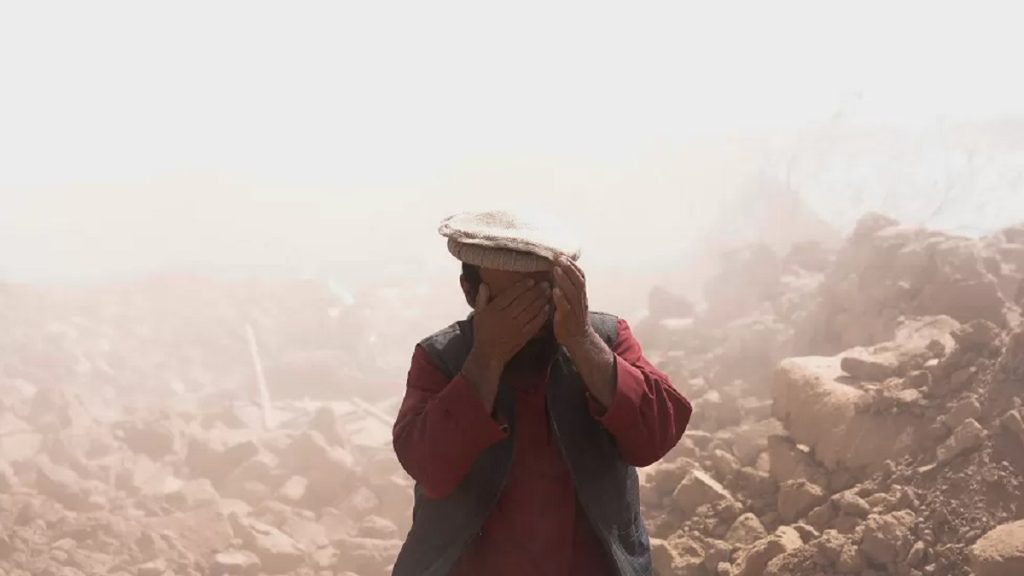KABUL: A magnitude 6.3 earthquake strikes Afghanistan again, just days after a previous devastating tremor claimed over 2,000 lives in the same region.
The latest quake, matching the magnitude of its predecessor, occurred at approximately 05:10 local time (00:40 GMT) on Wednesday, with the epicenter situated just 29 kilometers north of the city of Herat.
Since Saturday, volunteers and rescuers have been engaged in last-ditch efforts to locate survivors from the preceding earthquakes, which razed entire villages and impacted over 12,000 people, according to UN estimates.
While local and national officials provided conflicting counts of the dead and injured from the prior earthquakes, the disaster ministry confirmed 2,053 casualties.
“We can’t give exact numbers for dead and wounded as it is in flux,” stated disaster management ministry spokesman Mullah Janan Sayeq.
Following Wednesday’s quake, which struck near Herat city housing more than half a million people, there were no immediate reports of new casualties.
The earlier earthquakes obliterated at least 11 villages in Herat province’s Zenda Jan district, according to the UN.
“Not a single house is left, not even a room where we could stay at night,” lamented 40-year-old Mohammad Naeem, who lost 12 relatives, including his mother, in Saturday’s earthquakes.
Local media reported that many Herat residents had been spending nights in tents in the open air due to fears of aftershocks following the weekend tremors.
Providing widespread shelter poses a challenge for Afghanistan’s Taliban authorities, who seized power in August 2021 and have strained relations with international aid organizations.
Earthquake Strikes Afghanistan on the Weekened
Afghanistan frequently experiences deadly earthquakes, but the weekend disaster marked the worst in over 25 years for the war-ravaged country.
Rural Afghan homes, mostly constructed from mud with minimal steel or concrete reinforcement, and multi-generational families residing under the same roof make communities highly vulnerable to the devastation caused by serious earthquakes.
Compounding the crisis, Afghanistan is already grappling with a severe humanitarian situation exacerbated by the withdrawal of foreign aid following the Taliban’s return to power. Herat province, on the border with Iran and home to around 1.9 million people, has been enduring a prolonged drought in its rural communities.


